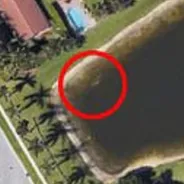Even with more than 16 years passed, the events of September 11 are still fresh in our minds. While we have celebrated the heroes who risked their lives to save who they could and mourned for those that couldn't be rescued in time, it's not often we focus on the physical effects on those who made it out.
Thomas Phelan, a former ferry captain, firefighter, and one of the unsung heroes of 9/11, passed away this week at the age of 45. On that fateful day, he played a vital role in the evacuation of hundreds of people from Lower Manhattan, but now he has fallen after a long battle with cancer.
Phelan was working as a ferry captain at the Statue of Liberty at the time of the attacks, and immediately leapt into action. He made use of what he had and turned his tour boat into an integral vehicle during the rescue operation, getting people far from the affected area. A tribute posted on NYC Fire Wire's Facebook Page read:
"Phelan took part in the largest evacuation in NYC history, as he helped evacuate lower Manhattan & rescue many people to the other side of the river.
"He brought supplies, rescue workers & was a huge part of the operation. He went on to join the FDNY assigned to Engine 55 then eventually making his way back to the waterways into Marine 9."
The tribute drew many responses from those who knew him and those who didn't. One user, Maura Buckley, wrote:
"I’m so sad! A true hero and gentleman.
"He would help anyone and everyone any chance he could. I just can’t believe this and honestly don’t understand why it’s always the good ones we lose way too early."
Paul Iannizzotto, who worked with Phelan at Engine 55, remembered him as being "a stand up guy, always doing the right thing and will be sorely missed. Rest easy brother."
Edward Fahey complimented him on his mastery of the boat, referring to something his father had said about Phelan during his lifetime:
"I was just talking to my old man and he said, even at a young age, you were the best boat captain he had ever seen."
However, it has been reported that the illness that took his life may have been a result of his actions that day, with his exposure to toxic fumes at Ground Zero having a potential life-changing effect.
The World Trade Center Health Program posits that almost 70 types of cancer have been linked to the site, and it is estimated that up to 40,000 survivors of the attack could be fighting diseases caused by their exposure to these toxins.
Dr. David Prezant, co-director for the Fire Department of the City of New York’s World Trade Center Medical Monitoring Program, said:
"The diseases stemming from the World Trade Center attacks include almost all lung diseases, almost all cancers—such as issues of the upper airways, gastroesophageal acid reflux disease, post-traumatic stress, anxiety, panic and adjustment disorders."
It shouldn't be forgotten that it isn't just the lives lost, the trauma, and grief caused by tragedies such as this, but the physical effects that we may not discover until years later. Regardless, it seems that even in a life cut short, Thomas Phelan did something truly special.








